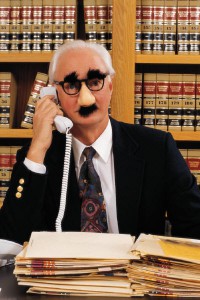Thanks to the proliferation of the Internet and the economic crisis, counterfeit goods are multiplying throughout the world of fashion. In 2011, fashion label Tory Burch won a $164 million lawsuit against a group of cyber-counterfeiters who slapped a Burch label onto fake shoes, accessories and purses. Chanel, in the same year, filed lawsuits against nearly 700 websites selling knockoff sunglasses, jewelry, wallets and other products bearing the Chanel name.
 Smaller boutiques with lower budgets and fewer employees do not always have the legal resources to fight counterfeiting. However, retailers of all sizes can learn from steps that others have taken in the fight against fakes.
Smaller boutiques with lower budgets and fewer employees do not always have the legal resources to fight counterfeiting. However, retailers of all sizes can learn from steps that others have taken in the fight against fakes.
Raise Public Awareness
Companies can start to fight back against counterfeiting by raising consumer awareness. Harper’s Bazaar ran a campaign a few years ago called, “Fakes are Never in Fashion.” The campaign was designed to teach consumers about the correlation of counterfeiting to child labor, drug trafficking and terrorism. In addition, companies should publicize successful prosecutions of counterfeiters. Counterfeiters may avoid brands that aggressively seek restitution.
Educate Customs Officials
The link between counterfeiting and terrorism has made customs officials much more interested in helping companies root out fake goods. Brand owners can register trademarks with the customs office, which will enable customs officials to provide reports about seized merchandise including country of origin, identities of importers and exporters, and the quantity of goods seized. Additionally, companies can meet with customs officials who work at common ports of entry for counterfeit merchandise to train them to identify genuine product.
Use the Search Engines
Because so many counterfeit goods are sold online, designers should use the search engines to fight back. Barbour, for example, has taken out paid Google ads that warn customers about counterfeiting. These ads come up automatically if a customer searches for “fake Barbour” on Google. For its part, Google has agreed to expel counterfeiters from its AdSense program within 24 hours of receiving a reliable report, and any company can work directly with Google to help reduce the presence of fakes online.




Recent Comments